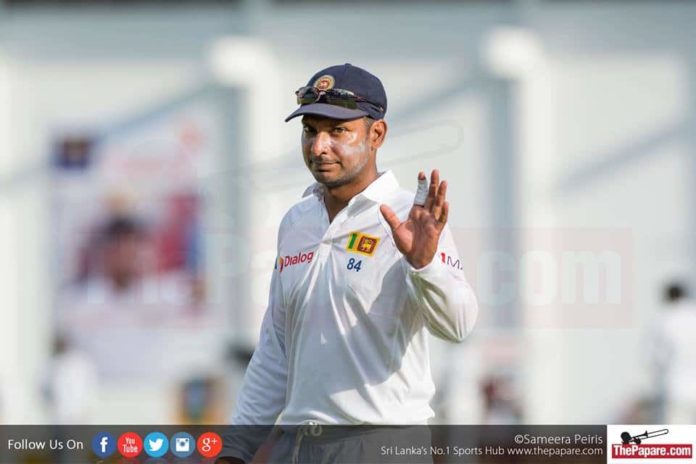St. Eugene’s Cup basketball tournament was dominated by University of Moratuwa a few years ago, who swept all trophies. Not only did they play some outstanding basketball, but they won the Spirit of Basketball medal as well for their conduct.
The occasion provided this writer to get to know these players and soon we became friends on Facebook. It is sad to note that almost all players who featured in that team have migrated with most of them living in the US. Good luck to them but you tend to wonder how the nation can progress when some of your best talents opt to migrate. Brain drain or exodus of the best talent is a serious crisis facing the nation.
Not just our finest brains but our cricketers too make use of schemes to enter countries like Australia post retirement. Australia has a system to award Permanent Residency for individuals who have represented their country in sports and many cricketers have benefited through this. You can pick a formidable Sri Lankan XI that is domiciled in Australia and perhaps struggle to pick a captain if you are provided a list of Sri Lankan players with PR in Australia.
There are of course the unique cases of some players who remain in Colombo post retirement. Sadly, they do not want to contribute to the game locally.
Ranjan Madugalle was a member of the selection panel that picked the 1996 World Cup squad. Skipper Arjuna Ranatunga told our Legends segment that Madugalle was one of the toughest guys to convince as a selector but if you could drive home the point, he will be prepared to go to war with you.
Now isn’t that the kind of selector that you would want in your set up. Sadly, Madugalle has not contributed at all to Sri Lankan cricket since 1996. The office of Match Referee becoming professional at the dawn of the 21st century limited his opportunities. But there was a brief spell between March to September 2001 when he was out of job but the last thing he wanted was to be involved with the sport locally.
Roshan Mahanama is another case in point. He made excellent strides as coach of Sri Lanka ‘A’ in 2001, a stint that was too short. Recently, there were hopes that he would help cricket locally, having quit his ICC job a few years ago but he doesn’t seem to be interested.
What is currently taking place in the city with some of our finest cricketers being hauled up before the Police and questioned for hours gives you an indication as to why some of these former cricketers do not wish to engage in the sport domestically. Cricket at times can be a cesspool.
Nobody understands the rationale behind the allegations of the 2011 World Cup final coming into the fore nine years after the game. Yet, those who engaged in that game have to provide answers for hours. Apparently, the cops and players have got on pretty well and most of the time has been consumed explaining technicalities of the sport.
Most of us play sports for fun but it does develop our personality. Time was when leading mercantile establishments in the country preferred hiring someone with a sports background when they were screening youth for jobs. A sportsman obviously is a team player. More importantly, he has this ability to make quick decisions. These are some of the plus points a sportsman scores over an academic.
>>Let’s move on from 2011 World Cup conspiracy theories<<
When we engage in sports, making quick decisions becomes part and parcel of life. Eventually that aspect is ingrained in us. The quick decisions that we make in sports and eventually professionally, go right but there are occasions you don’t get it right. Here’s an example. The same set of individuals who have been accused of engaging in four play in 2011 World Cup final took a crucial decision that changed the course of Sri Lankan cricket more than a decade ago.
Kumar Sangakkara was heading into his first Test as captain – against Pakistan in Galle in 2009. Just 48 hours before the game, Muttiah Muralitharan was injured. There were enough replacements around. There was Suraj Randiv, Ajantha Mendis, Malinga Bandara and Sajeewa Weerakoon to name a few. But Sanga did quite the contrary. He wanted Rangana Herath who was playing league cricket in England flown over for the game.
Herath bowled a couple of brilliant spells and won the Test match and Sri Lanka went onto complete their first home series win against Pakistan. Herath would go onto play for another decade becoming the most successful left arm bowler ever in the history of Test cricket.
Imagine the result of that Galle Test match not going in Sri Lanka’s favour. There would have been hell to pay. Sanga would have been hauled up again and he would have been asked why he opted to bring someone who was in England when he had plenty of options available at home. He would have been also asked when an off-spinner was injured, what was the point in bringing a left-arm spinner? These all would have looked sound argument for the common man. But in sports there is something more than rational. There is something call instinct. There is something called strategy. Guys like Sanga were brilliant at that. So, the answer for opting for Herath was that Sanga was convinced that Pakistan batsmen had some weakness against left-arm spin. Hence the choice of Herath. Rest they say is history.




















